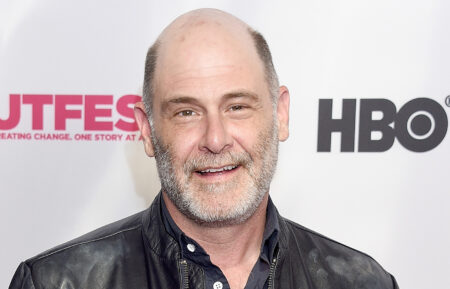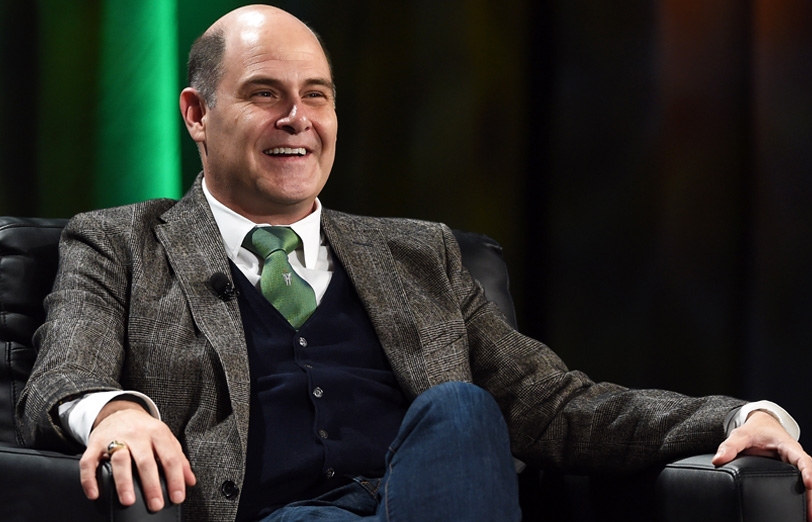While laboring on the sitcom "Becker" (CBS, 1998-2004), Matthew Weiner penned a television pilot for a series about an advertising agency in the early 1960s. The script caught the attention of writer-producer David Chase, who brought Weiner on board his Emmy-winning series "The Sopranos" (HBO, 1999-2007). There, Weiner penned some of the show's most memorable episodes. Weiner also served as a producer on "The Sopranos" during its final three seasons and shared in the show's Emmy windfall during final seasons. After "The Sopranos" ended its network run, he pitched his advertising script, titled "Mad Men" - a play on the term for advertising executives on New York's Madison Avenue - to numerous networks, including his former employers at HBO, but found no takers.
He eventually landed the show at American Movie Classics (AMC), a basic cable network seeking to break out of its established mold as a nostalgia movie channel. The show was a sizable hit with critics and quickly put AMC on the map. It also served as the formal notice that Weiner was one of the most outstanding creative forces in 21st century television drama.
Born in Baltimore, MD in 1965, he was the son of noted neuroscientist Leslie Weiner (pronounced WHY-ner) and his wife Judith, a law school graduate who raised Weiner and his three siblings. By the relatively few accounts of his childhood, Weiner's parents strove to educate their children about the finer aspects of the arts, including classic movies, literature and opera.
While attending the Harvard-Westlake school in Los Angeles, Weiner developed a fascination for American history, with a particular focus on the 1950s, though he admitted in an interview that part of his reason for cultivating this interest was to find a common ground on which to communicate with his parents. He also found a particular attraction to the television dramatists of the period who cut their teeth on live programming like Paddy Chayefsky and Rod Serling.
He enrolled in the College of Letters at Wesleyan University, from which he graduated in 1987 with a major that combined philosophy, literature and history. Weiner decided to pursue his passion for film at the University of Southern California's School of Cinema and Television; he got in with the help of his father, for whom the school's neuroscience research center was named.
While at USC, he worked on a documentary, "It's All True," which explored the world of the paparazzi. Upon graduation, he struggled to land work as a screenwriter, but earned his biggest payday as a contestant on "Jeopardy!" (NBC/syndicated, 1964-1979, 1984- ). He eventually found a job writing on the short-lived series "Party Girl" (Fox, 1995), which preceded writing jobs on two shows with equally brief network runs, "The Naked Truth" (ABC/NBC, 1995-98) and "Andy Richter Controls the Universe" (Fox, 2002-03).
Weiner then joined the writing staff on the Ted Danson sitcom "Becker," where he found steady employment but quickly grew dissatisfied with the quality of the work. In 2000, he penned the spec script which would eventually become the pilot for "Mad Men."
Set in the early 1960s, the show revolved around the personal and professional lives of the employees at the fictitious New York ad agency, Sterling Cooper. The firm's creative director, Don Draper, was the show's focus: supremely confident and skilled at his job, he reaped the benefits afforded to the post-war white male in a comfortable home, attractive wife and children, a weighty expense account and even a few girlfriends on the side.
But as the series progressed, Draper's Teflon exterior was slowly peeled away to reveal a man so conflicted and tormented by his past that he switched his own identity with a fellow WWII serviceman killed in combat. Draper's moral conflict carried over to the rest of the show's characters, each of whom called into question the supposed "good life" enjoyed by America's middle class in the 1950s and 1960s.
Weiner submitted the spec to David Chase, then riding high as the creator of one of television's most successful and critically acclaimed hits, "The Sopranos." Chase was impressed by what he read and offered Weiner a writing position on the series. There he penned or co-wrote several of the best episodes aired by the series in its final years, including "Kennedy and Heidi," which saw the death of long-running character Christopher Moltisanti (Michael Imperioli) at the hands of his beloved uncle, Tony Soprano (James Gandolfini), and "Unidentified Black Males," in which Meadow Soprano's boyfriend witnesses a member of Tony's crew engaged in homosexual activity.
Weiner eventually became a producer on the series and as such, netted two Emmy awards in the show's fifth and seventh seasons.
After "The Sopranos" aired its infamous fade-to-black finale, Weiner decided to shop his "Mad Men" script to various networks. However, he found few takers - even at HBO - and faced similar refrains in each case: the characters were unlikable, it was a period piece - even that there was "too much smoking." Disappointed but undaunted, Weiner persevered and found an unlikely patron in AMC, which was in the market for its first original series.
Delighted by its inherent dramatic qualities and its link to the past - as AMC started life as a "classic film" channel - they ordered 13 episodes. Weiner assumed almost total control of the show from the start by serving as head writer, co-author of most of the scripts, executive producer and show runner -- even director on the first season finale.
The response from critics and audiences alike was overwhelmingly positive. TV scribes gushed over the complex characters and plotline, while viewers and pundits marveled over the blatantly un-PC behavior of its main players, which ranged from three-martini lunches to openly sexual interoffice romps. The overall maturity and intensity of Weiner's storylines, delivered with skill by a largely unknown cast, was the key selling point, and award organizations were keen to shower the program with trophies at the end of its freshman season. Among the laurels collected was the 2008 Emmy for Outstanding Dramatic Series - a first for a basic cable series - as well as an Emmy to Weiner himself for Outstanding Writing for a Dramatic Series.
Weiner also collected a Writers Guild of America Award in 2008. That same year, under intense secrecy, he prepared the show's second season, which launched in July to another round of critical applause. The following year, he would repeat the double-Emmy win in the same categories, while in 2010 "Mad Men" nabbed a whopping 17 nods, making it the most nominated drama that year. For his part, Weiner earned two Emmy nominations for Outstanding Writing for his work on the episodes "Guy Walks Into an Advertising Agency" and "Shut the Door;" he would win for the latter, sharing it with co-writer Erin Levy.












































